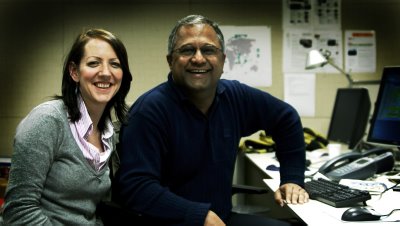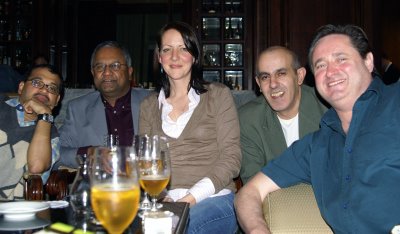By Jody Sabral

Does being a nationalist make you a fascist? For those who do not know Turkey, it might. Recently I was challenged by a Turkish colleague that in Turkey being a “nationalist” does not mean the desire for a pure “Turkic” race.
He explained: “If you say ‘Turkish-nationalist’ then it’s different, this could be used to describe a kind of fascism. But the prefix “Turkish” is important here. This kind of nationalism is one that is built on an idea of ethnicity perhaps. I can say I’m nationalist ‘milliyetciyim’ but I say it because I love my country, not because I hate people who have a different ethnic root than I. My country is a mosaic, which is why I love it.”
By definition in English, nationalism can mean: The desire for and the attempt to achieve political independence for his/her country, according to the Cambridge dictionary. It can also describe someone who loves their country “too” much.
This “too” much, is always a worry when we talk about nationalism in English, but my friend went on to explain.
“Why can’t we say we love our country. It’s a regular healthy expression. It doesn’t mean that I hate all other races that are different than me.” he said.
It was then that I realised there must be a different word to describe him in Turkish, although he still insists that nationalist is ok.
The word I was looking for was “vatan sever”, which means patriot. By definition, according to the Cambridge dictionary, it means someone who loves their country and is prepared to die for it.
So what is the difference then between patriot and nationalist? Not much according to the dictionary, but it is a widely held common idea that a patriotic person is not as threatening as a nationalist to a multi-ethnic society.
So, is this why the West have hyped the “rising nationalism” in Turkey? Is there really a rise in nationalism, or has it always been like this? And have we just got it wrong by definition?
In recent polls less than 10% of Turks said that they supported US policies. This is then translated into a “new nationalism” in Turkey.
It may be more accurate but less provocative to say that there has been a “rise in patriotism as Turks look to their own government to solve their problems from within.”
And after the Iraqi invasion, which happened right next door – who would blame them?
It’s all too easy to categorize people according to our own perceptions and politics, especially when it suits our own cause.
I hate definitions in all their forms although I am forced to apply them because I work in the media. Television does not allow you time to explain, so labels and adjectives are used to simplify the message. But then it becomes distorted, squeezed between media organizations
Facts speak for themselves, don't they?
Turkey is a multi-layered society, in which labels get distorted. These labels divide and conquer, they do not harmonise or even get close to the root of the problem.
Many Turks choose a lifestyle when they choose an ideology - it is not always a political statement. It can be the difference between getting a regular salary, or not, or working in a building that has a bar in its basement or not - very simple things.
Turks are tolerant, which is sometimes a curse, but at the same time it can be a blessing. Turkey is a nation that was built from a crumbling empire. It was saved from the invaders. Its identity is built on this notion, but we now see that it is moving to a new era, one that is not based on fear.
It was built on its own defense, when are we going to stop giving "it" such a hard time, and allow it time to breathe and catch up to where it needs to be. It has the ability, it has the academics, yes, and now it seems that there is some revitalized political will. It has a wealth of cultures, it is still for me a mini-empire where multitudes of cultures intermingle as one.
I have fascinating conversations with friends about their origins, which are hardly ever Turk by ethnicity. What is Turk anyway?
No wonder Turkey is still defending itself.
This week, a colleague in France, who was to host a programme on Abdullah Gul’s candidacy asked me: “But why is everyone so sure that he will secure the presidency? Especially now that there is a nationalist party in parliament?”
My answer: “Being Muslim is part of the Turkish identity, not all nationalism is Turkey is built on what we know it to be in the West. The MHP is a nationalist party yes, but it also has religious roots too.”
“Oh, that is strange,” she said.
“Yes, but that’s Turkey,” I said, “which is why it’s so fascinating.”
AND HERE'S THE TURKISH
http://www.boyuthaber.com/haber/20070823/Milliyetcilik-ve-Vatanseverlik.php
Milliyetçilik ve Vatanseverlik
“Evet, burası Türkiye, işte budan dolayı burası büyüleyici”
23 / 08 / 2007 02:28
jodysabral@boyuthaber.com
Milliyetçi olmak bir insanı faşist yapar mı? Türkiye’yi tanımayanları evet yapar. Geçenlerde bir Türk meslektaşım bana Türkiye’de “milliyetçi” olmak için illa da saf “Türk” ırkından gelmek gerekmediğini söyledi.
Bana aynen şöyle bir açıklamada bulundu “Eğer “Türk-Milliyetçisi” dersen bu farklıdır, bu ifade bir tür ırkçılık olarak tanımlanabilir. Ancak burada “Türk” öneki önemlidir. Bu tür bir milliyetçilik muhtemelen bir etnisite fikri üzerine inşa edilmiş olabilir. Ben “milliyetçi” olduğumu söyleyebilirim, ancak bunu sadece vatanımı sevdiğim için ifade ederim yoksa benden farklı etnik kökenden gelen insanlardan nefret ettiğim için değil. Ülkem bir mozaik gibidir ve bunun için onu seviyorum”.
İngilizce tanımıyla “milliyetçilik”; Cambridge sözlüğüne göre şu anlama gelir: “bir kişinin ülkesinin siyasi bağımsızlığını gerçekleştirmek için beslediği arzu ve girişimdir.” Bu tanımın devamı olarak da “milliyetçi” bir kişi ülkesini “çok fazla” seven kişi olarak tanımlanabilir.
Bu “çok fazla” ibaresi, İngilizcede milliyetçilikten bahsederken duyduğumuz bir kaygıdır her zaman. Ancak arkadaşım açıklamasına şöyle devam etti:
“Niçin ülkemizi çok fazla sevdiğimizi söyleyemeyelim ki? Bu, gayet düzenli ve sağlıklı bir ifade. Bunu söylemem benim benden olmayan diğer tüm ırklardan nefret ettiğim anlamına gelmez”.
İşte o zaman onu Türkçede başka bir kelime ile tanımlamak gerektiğini fark ettim gerçi o “milliyetçi”nin uygun olduğunu düşünse de.
Benim aradığım kelime İngilizcede “patriot” olarak ifade edilen “vatansever”di. Yine Cambridge sözlüğüne göre vatansever: “ülkesini seven ve onun için ölmeye hazır olan kimse”dir.
O zaman vatansever ve milliyetçi arasındaki fark nedir? Sözlüğe göre pek fark yok, ancak geniş kesimlerce benimsenen ortak fikre göre vatansever bir insan çok ırklı bir toplumda milliyetçi birisi kadar tehdit unsuru olarak algılanmaz.
İşte bundan dolayıdır ki, Batılılar Türkiye’de “yükselen milliyetçiliğe” aşırı dikkat çekmeye uğraşırlar. Milliyetçilikte gerçekten bir yükseliş var mı, yoksa her zaman böyle miydi? Yoksa biz aslında sadece tanımdan dolayı mı bu yanılsamaya düşüyoruz?
Son yapılan kamuoyu araştırmalarına göre Türklerin % 10’dan daha azı ABD politikalarını destekliyor. Yani % 90’dan fazla bir ABD karşıtlığı var. Böyle olunca bu durum Türkiye’de “yeni milliyetçilik” olarak değerlendiriliyor.
“Türkler kendi hükümetlerinin kendi meselelerini çözmesini istedikçe vatanseverliklerinde bir yükseliş var” demek daha dikkatli ve daha az provokatif bir ifade olabilir.
Özellikle de hemen yanı başlarında cereyan eden Irak işgalinden sonra, onları kim suçlayabilir?
İnsanları kendi algılamalarımıza ve politikalarımıza göre kategorize etmek, özellikle de işimize de geliyorsa çok kolay ve basittir.
Ben, medyada çalıştığım için sıkça kullanmam gerekse de, tüm tanımlamaların her çeşidinden nefret ediyorum. Televizyon açıklama yapma imkânı vermiyor size, böyle olunca da etiketler ve sıfatlar mesajı basitleştirmek için kullanılıyor. Ama bu durumda da her şey medya kuruluşlarının arasında eğip bükülüyor ve tahrif ediliyor.
Hakikatler yalnız kendileri için konuşurlar, öyle değil mi?
Türk toplumu, etiketlerin tahrif edildiği çok katmanlı bir toplum. Etiketlemeler bölüyor ve fethediyor, uyum sağlamıyorlar ve sorunun köküne bile yaklaşamıyorlar.
Türklerin çoğu illa siyasi olmasa da, ideoloji seçerken hayat tarzlarını da seçiyorlar. Burada, düzenli bir maaşı olup olmamak, oturduğu binanın altında bar bulunup bulunmamak gibi çok basit şeylerden dolayı farklılıklar oluşmakta.
Türkler hoşgörülüdürler, bu bazen bir lanet gibi görünse de aynı zaman da rahmet olarak da algılanabilir. Türkler batmış bir imparatorluğun küllerinden inşa edilmiş bir millettir. İşgalci ve istilacılardan kurtarılmış bir millet. Kimliklerinin aslında bu nosyon ve kavram üzerine inşa olduğunu, ancak bununla birlikte korkuya dayanmayan yeni bir çağa ve aşamaya doğru ilerlenmekte olduğunu görüyoruz.
Çok zor, artık “vermekten ve kaybetmekten” ne zaman kurtulacağız denilen bir dönemde nefes alacak ve olması gereken yere gelecek biçimde kendi savunması üzerine inşa edilmiş bir toplumdur Türk toplumu. Yeteneği vardır, bilim adamları vardır ve yeniden canlanmış bir siyasi iradesi vardır. Kültürel serveti vardır, bana göre Türkiye hala benzersiz bir biçimde kültürel birikimlerin harman olduğu bir mini imparatorluktur.
Etnik olarak çoğu saf Türk dahi olmayan Türk arkadaşlarımla çok sürükleyici konuşmalarım oluyor. Bu arada anlam olarak Türk ne demekti?
Türkiye’nin hala kendini savunuyor olması şaşılacak bir şey değil.
Bu hafta Abdullah GÜL’ün adaylığı ile ilgili bir program sunacak olan Fransa’dan bir meslektaşım bana şunu sordu: “Ama neden herkes GÜL’ün cumhurbaşkanlığına kesin gözüyle bakıyor? Özellikle de şimdi mecliste bir milliyetçi parti varken?”
Benim cevabım aynen şöyle oldu: “Müslüman olmak Türk kimliğinin bir parçasıdır, Türkiye’deki milliyetçiliğin tamamı bizim Batıda algıladığımız anlam ve değerler üzerine kurulu değildir. Evet MHP, milliyetçi bir partidir ama dini kökleri de vardır”.
“Ya öyle mi, bu çok ilginç” dedi.
Ben de: “Evet, burası Türkiye, işte budan dolayı burası büyüleyici” dedim.
Fotoğraf İkizdere Ovit Şenliklerinde Jody SABRAL tarafından çekilmiştir.
-----
Jody SABRAL'ın yazısı Yavuz Selim KURT tarafından tercüme edilmiştir.











